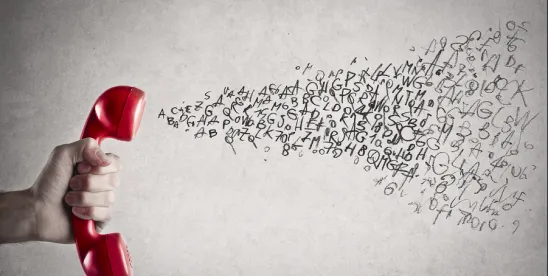While the FCC has a record open to adopt guidance and a new definition for what it considers as an “automatic telephone dialing system” (ATDS) and related TCPA matters, there appears to be growing consensus on “Robocall” legislation in the two houses of Congress that may be moving TCPA legislation closer to reality. On the heels of the Senate passing Senate Bill 151 (entitled “Telephone Robocall Abuse Criminal Enforcement and Deterrence (TRACED) Act”), the House of Representatives yesterday introduced a new bipartisan bill – House Bill 3375 – that would bolster the prospects that Congress may be able to pass legislation this year.
House Moves Speedily to Forge a Bipartisan Bill
Soon after the House Energy and Commerce Committee examined seven house bills related to illegal and abusive robocalls on April 30, 2019, which we previously discussed, committee members began negotiating on a bill that would combine some elements from these bills in the hope of getting bipartisan support. That process moved quickly, as a compromise bill was introduced in the House of Representatives on June 20, 2019 (its draft language is available here). According to Pallone and the House Commerce Ranking Member Greg Walden, this bill could be marked up next week. The focus of this compromise bill is to clarify the definition of a “robocall,” clarify legislative exemptions to TCPA calling restrictions, ensure the implementation of a national database of reassigned phone numbers, and require FCC-FTC cooperation to reduce abusive robocalls. Specifically, the bill would:
-
Require that voice service providers implement call authentication technology at no additional line-item cost to consumers or to small business customers.
-
Require the FCC to identify or develop alternative effective methodologies that are suitable for small or rural voice service providers to protect consumers from receiving unauthenticated calls.
-
Require that any carriers who offer call blocking services to consumers on an opt-out basis, pursuant to the FCC’s “Call Blocking by Default” Declaratory Ruling issued earlier this month, must ensure that those services incur no additional line charge to the consumers.
-
Direct the FCC to amend its rules or issue new guidelines to clarify the description of “automatic telephone dialing systems and calls made using an artificial or prerecorded voice” and to clarify certain consumer protection measures within six months after the bill’s enactment.
-
Require that FCC’s robocall exemptions specify:
-
The classes of parties that may make such calls;
-
The classes of parties that may be called; and
-
The number of such calls that a calling party may make to a particular called party.
-
-
Extend the window for FCC enforcement actions against violators from two to three years and against intentional violators from two to four years.
-
Mandate that the FCC submit a report to Congress on the implementation of its reassigned numbers database within a year after the enactment of this bill.
-
Require the FCC and the FTC to submit detailed annual reports to Congress regarding enforcement actions against robocalls and spoofed calls.
Senate Bill 151 (TRACED Act) Passed With Several Changes
The Senate voted 97-1 to pass the Senate Bill 151 on May 23, 2019. This Bill has undergone several changes since it was first introduced to the 115th Congress on November 15, 2018.
The current version of the bill would authorize the FCC to assess civil penalties “not exceed[ing] $10,000 for each violation or each day of a continuing violation” up to $75,000 for any single act or failure to act, plus an additional penalty not to exceed $10,000 for violation with intent. The bill would also extend the window for FCC enforcement actions against intentional violator from two to three years. The FCC, after the enactment of this bill, would be required to submit detailed annual reports to Congress regarding its enforcement actions against robocalls and spoofed calls.
Consistent with the FCC’s efforts in its recent Third Further Notice of Proposed Rulemaking, the bill would codify the SHAKEN/STIR authentication framework as a statutory requirement. It would impose a twelve-month deadline upon voice service providers to adopt the framework for all Internet-Protocol-based calls, unless the voice service provider could prove “substantial hardship” due to the expenses in purchasing or upgrading equipment or the lack of availability of equipment to support call authentication. In the event of unintended or inadvertent blocking of legitimate calls due to misidentification of the call authentication framework, voice service providers would be shielded from liability of unintended or inadvertent blocking of legitimate calls according to a safe harbor rule to be established by the FCC.
Notably, this bill in 2019 added a new requirement that the FCC must “establish[] a process to permit a calling party adversely affected by the information provided by the [SHAKEN/STIR] framework . . . to verify the authenticity of the calling party’s calls.” This addition seems to reflect a new focus that could involve the FCC in proscribing formal challenge procedures or removal mechanisms, which the FCC has not yet embraced, including in its most recent “Call Blocking by Default” Declaratory Ruling.
Lawmakers Seem Confident That Reconciled Legislation Will Succeed
Many lawmakers have expressed in the past few weeks that public animus towards robocalls may be one of the few things that still unite the parties. According to Communications Daily’s news report on June 12, 2019, Senator Ed Markey (D-Mass.) is liking the chances that a conference committee can successfully reconcile the new House Commerce bill and the Senate-passed bill 151: “Without question, if there are no other bills signed into law this year by [President Donald Trump], there will be one on robocalls.” Exactly how the House bill emerges and is reconciled with the Senate’s bill remains to be seen. What does seem plain is that the FCC may await legislation before it adopts new guidance on ATDS definitions.




 />i
/>i

